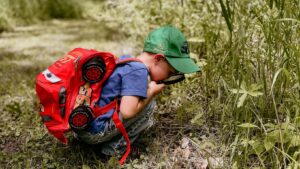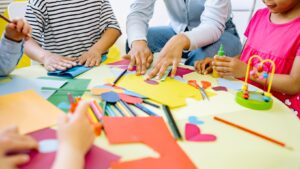Embarking on an educational journey can often feel like an adventure, filled with twists and turns, challenges, and triumphs. It’s a path that leads to new discoveries and profound insights, transforming the way we perceive the world around us.
This article delves into the exhilarating realm of “adventures in learning”. It explores how the pursuit of knowledge can be a thrilling expedition, rather than a mundane task. From innovative learning techniques to the joy of mastering a new skill, we’ll uncover the true essence of this educational adventure.
Adventures in Learning

From exploring new educational territories to ascending steep learning walls, adventures in learning encompass a wide spectrum of educational experiences. Through this journey, individuals take an active role in their own learning, transforming what can often feel like mundane academic exercises into an exciting adventure filled with unique challenges and triumphs.
What Is Adventures in Learning?

Adventures in learning isn’t simply a term, it’s a philosophy, one that incites curiosity and fosters a love for learning. It typifies a paradigm where every learning situation unfolds as a fresh discovery, a novel revelation, or an enigmatic mystery ready to be unraveled. It promotes an environment where learners, regardless of age or academic proficiency, are free to explore, inquire, and synthesize information at their own pace and in their own unique way. Whether it involves solving complex math problems, reading a stirring novel, or participating in a science fair, every educational exploration becomes an adventure, stimulating a deeper engagement with the learning material.
The Benefits of Experiential Learning Methods
Experiential learning methods, the key driver behind adventures in learning, packs numerous benefits. Let’s delve into a few of these advantages.

- Enhances Learning Experience: It transforms abstract, hard-to-understand concepts into tangible experiences. This helps in better comprehension and recall, offering practical examples of theoretical concepts.
- Promotes Critical Thinking: As learners are thrown into real-world situations, they’re encouraged to think critically and analytically, rather than merely absorbing pre-packaged knowledge.
- Fosters Soft Skills : Along with academic skills, experiential learning nurtures valuable life skills such as teamwork, communication, leadership, and problem-solving.
Adventure-based experiential learning is starkly different from traditional, content-driven instruction. In this paradigm, it’s not just about what students learn, but how they learn. It’s significant how one voyage into a math problem can foster a wealth of other soft skills – while solving the problem itself. The benefits of this educational outlook emphasize the transformative potential of viewing the educational landscape as an adventurous voyage, ripe for exploration.
Key Elements That Make Learning an Adventure
In transforming education into an adventurous journey, a blend of crucial elements come into play. This section delves into two pivotal aspects that infuse the thrill of exploration into the learning process: Incorporating play and exploration, and emphasizing practical experience.
Incorporating Play and Exploration

Making education adventurous demands a shift in perspective. It entails embracing play and exploration in learning environments. Unstructured play stimulates the imagination, creating a natural curiosity about the world. For example, allowing students to construct a model volcano, erect a lego building, or even role-play historical events breathe life into learning. It’s this natural curiosity that serves as a launching pad for inquiry and exploration, ensuring students are not just passive recipients of knowledge, but hearkening adventurers on a quest for understanding.
Emphasizing Practical Experience
Beyond the classroom walls, real-world experiences lend gravitas to abstract theory. Immersion in practical tasks encourages tangible application of skills and knowledge. For instance, field trips to local businesses, science fairs, or internships at governmental agencies make learning more relatable and tangible. Thus, a focus on practical experiences changes the dynamics of learning, morphing it into an adventure where challenges are resolved and victories are celebrated.
A Powerful Tool in Education
Adventure in learning is more than a buzzword. It’s a transformative approach that merges play, exploration, and traditional education. The success of initiatives like the “Magic of Electrons” curriculum and outdoor programs like NatureBridge and The Island School attests to its potential. However, it’s not without challenges. Safety concerns and rigid curriculums can be hurdles

